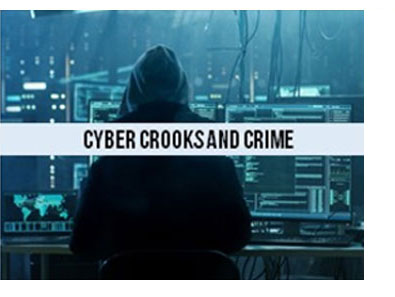 |
THIS ISSUE'S HEADLINES
New Deadlines Announced for MA Paid Family and Medical Leave Law
Cybersecurity Podcast Series & Library of Knowledge Expands
First Circuit Upends Conventional Wisdom on Enforcement by Bondholders Regarding “Pledged Special Revenues”

NEW DEADLINES ANNOUNCED FOR MA PAID FAMILY AND MEDICAL LEAVE LAW
In 2018, Massachusetts passed a new law that provides workers with paid family and medical leave (the “PFML Law”). With limited exceptions, it applies to most Massachusetts employers, large and small, and includes both W-2 employees and some independent contractors who receive Form 1099MISC.
 Earlier this month the Massachusetts Department of Family and Medical Leave (the “Department”) announced changes to two fast-approaching deadlines under the PFML Law. First, the deadline for employers to provide written notice, including email notice, to their employees was extended from May 31, 2019 to June 30, 2019. The Department has posted sample forms of notice on its website. Earlier this month the Massachusetts Department of Family and Medical Leave (the “Department”) announced changes to two fast-approaching deadlines under the PFML Law. First, the deadline for employers to provide written notice, including email notice, to their employees was extended from May 31, 2019 to June 30, 2019. The Department has posted sample forms of notice on its website.
Also, employers that maintain a private plan with comparable or better benefits for its employees may apply for an exemption from the PFML Law. Private plan exemptions must be approved in the calendar quarter prior to the quarter in which they become effective. The deadline for requesting an exemption for the first quarter of 2019 has now been extended to September 20, 2019. However, it is important to note that this extension of the exemption application deadline only affects contributions required under the PFML Law if the exemption is approved. If the application is not approved, the employer will be required to remit all required contributions retroactive to July 1, 2019. For more information on this issue or other business matters, please contact PLDO Partner William F. Miller or Attorney Joshua J. Butera at 401-824-5100 or email wmiller@pldolaw.com and jbutera@pldolaw.com.
[back to top]

CYBERSECURITY PODCAST SERIES & LIBRARY OF KNOWLEDGE EXPANDS
Safeguarding company information against cyberattacks is a priority for business owners. In the age of big data, the likelihood of a breach is not a question of if, but when. To help businesses address the risk and costly consequences of a cyberattack, PLDO and Citrin Cooperman teamed up to offer an original series of informational podcasts, entitled Cyber Crooks and Crime. The podcasts, along with other cybersecurity information and learning materials can be accessed at Cyber Crooks and Crime.
 This week two new podcast episodes have been added to the library of knowledge. Episode III covers “Breach Response and Preparedness in the 21st Century,” which includes a discussion on the costs and consequences of a breach as well as the tools and techniques available to minimize cyberattacks. Episode IV describes some of the protective measures used by cybersecurity experts to reduce the risk of an attack and explains certain value-added benefits gained by a company in its consideration of outsourcing cybersecurity to ensure long-term protection of its digital footprint and as part of its business continuity planning. This week two new podcast episodes have been added to the library of knowledge. Episode III covers “Breach Response and Preparedness in the 21st Century,” which includes a discussion on the costs and consequences of a breach as well as the tools and techniques available to minimize cyberattacks. Episode IV describes some of the protective measures used by cybersecurity experts to reduce the risk of an attack and explains certain value-added benefits gained by a company in its consideration of outsourcing cybersecurity to ensure long-term protection of its digital footprint and as part of its business continuity planning.
The podcast series features PLDO Partner Brian J. Lamoureux, a leading voice and frequent commentator on social media and digital law and cybersecurity legal issues, and Kevin Ricci, CISA, CRISC, MCSE, QSA, a leader in the cybersecurity practice at Citrin Cooperman. Each episode takes a deep dive into the cybersecurity landscape and includes discussion about legal issues regarding privacy rights and data protection. To access the podcasts and other informational resources, visit Cyber Crooks and Crime where you can read the most recently posted article, Devise A Plan Before A Data Breach, that was co-authored by Attorney Lamoureux and Mr. Ricci and published in the May 31, 2019 edition of Providence Business News. If you have questions about your organization’s cybersecurity strategies or legal issues, call Attorney Lamoureux at 401-824-5100 or email bjl@pldolaw.com.
[back to top]

FIRST CIRCUIT UPENDS CONVENTIONAL WISDOM ON ENFORCEMENT BY BONDHOLDERS REGARDING “PLEDGED SPECIAL REVENUES”
The Court of Appeals for the First Circuit recently upended conventional wisdom when it held that a statutory exemption for bondholders who rely on “pledged special revenues” does not actually allow them to enforce actions or liens against such funds when the debtor has filed for bankruptcy.
 Section § 922(d) of the Bankruptcy Code provides that a petition filed under chapter 9 does not operate as a stay against the application of pledged special revenues. The Bankruptcy Code defines special revenues as revenues and tax receipts from specific activities or transactions that bear a relation to the project being financed. See 11 U.S.C. § 902(2). For example, special revenues may be funds from highway tolls that are pledged to finance bonds—the proceeds of which were used to finance bridge and road improvements. Section § 922(d) of the Bankruptcy Code provides that a petition filed under chapter 9 does not operate as a stay against the application of pledged special revenues. The Bankruptcy Code defines special revenues as revenues and tax receipts from specific activities or transactions that bear a relation to the project being financed. See 11 U.S.C. § 902(2). For example, special revenues may be funds from highway tolls that are pledged to finance bonds—the proceeds of which were used to finance bridge and road improvements.
Courts had previously interpreted this provision as a “protection in chapter 9 cases of a pledge of special revenues under revenue bonds” against the automatic stays triggered by a bankruptcy filing. See Syncora Guar. Inc. v. City of Detroit, 2014 U.S. Dist. LEXIS 94107, at *5 (E.D. Mich. July 11, 2014) (quoting 6 Collier on Bankruptcy ¶ 922.05 (Alan N. Resnick & Henry J. Sommer eds., 16th ed.)); In re Jefferson County, 474 B.R. 228 (Bankr. N.D. Ala. 2012) (“[T]he automatic stays of § 362(a) and § 922(a) are inapplicable to these pledged special revenues.”).
In Assured Guar. Corp. v. Carrion, 919 F.3d 121 (1st Cir. 2019), the First Circuit, rejected that interpretation and took a much more nuanced view of § 922(d). Bond insurers argued that § 922(d) operated as a carve out that exempted pledged special revenues from the automatic stay. In other words, a bondholder or insurer could still institute an action to enforce a lien against special revenue that a bond issuer had pledged to the bondholder.
While the First Circuit agreed that the automatic stay does not apply to application of pledged special revenue, the First Circuit nevertheless rejected the insurers’ argument that a lien could be enforced against the pledged special revenue. Rather, § 922(d) allowed debtors to voluntarily pay bondholders funds derived from pledged special revenues but says nothing regarding the mandatory payment of such funds when an automatic stay is otherwise in place. The bond insurers argued that this interpretation was superfluous—a debtor can always voluntarily pay its debts regardless of the stay. The First Circuit responded that prior to legislative amendments, there was uncertainty as to whether a debtor could voluntarily pay when an automatic stay was in place.
At the heart of the Court’s analysis was that “[n]othing in the statute’s plain language, however, addresses actions to enforce liens on special revenues, which are specifically stayed by Section 362(a)(4) of the Bankruptcy Code, or allows for the compelling of debtors, or third parties holding special revenues, to apply special revenues to outstanding obligations.” If Congress truly wanted to exempt actions to enforce the receipt of pledged special revenue funds from an automatic stay, it knows how to do so expressly, the Court reasoned.
Many in the bond market industry have questioned the First Circuit’s reasoning. Going forward, the First Circuit’s controversial decision is likely to affect how underwriters and bondholders treat pledged special revenue and may require additional protections from bond issuers. For further information on this issue or other business matters, please contact PLDO Attorney Joshua J. Butera at 401-824-5100 or email jbutera@pldolaw.com.
[back to top]
|
 |







